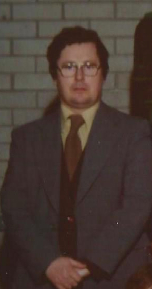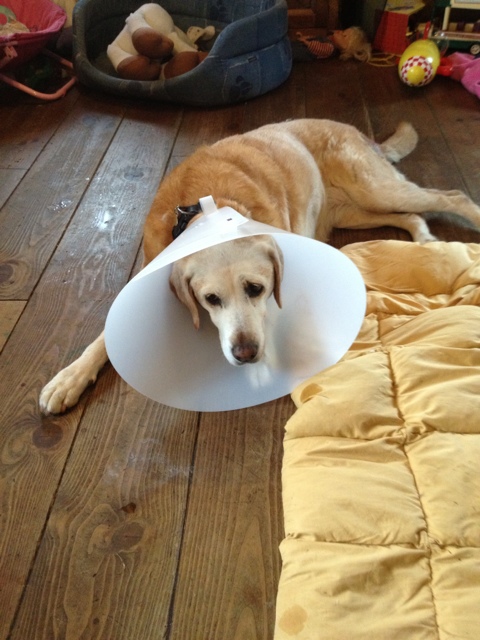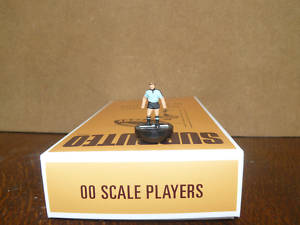
Master Joe
When I was at St Colmcille’s Primary School in Omagh, I got an education in gaelic football that was taken for granted, but which I know now to have been invaluable. In fact, it is the stuff of legend round Omagh, if anyone ever stopped to think about it. For that, take a bow Joe McElholm, as the pundits would say. More of Master Joe later.
Probably nowadays some of what we did would be frowned upon. Fifteen-a-side matches on a full size pitch for example. Intra school tournaments of four six or eight teams. Hawks, Eagles, Falcons, or Harps, Shamrocks, etc. God there must have been some craic in the classroom picking the teams when us boys were signed up.
The first competition I ever played in I was in P4. Being tall I was put in goal. I remember still vividly standing in the goalmouth at the Gortin Road end of the Christian Brothers Park. The goalmouth was deep in water and the hardier souls, usually boys from O’Kane Park and Strule Park would rush in splashing ferociously through the water to try to score.
I remember coming for one high ball, catching it and hoofing it out the field as far as my good left foot would let me. The teacher told me well done. It might have been the late Master Harkin or Master Foley. I disliked doing goal intensely and hoped that I would be put out the field as promised the next day. That didn’t happen. And having shipped a few scores I pulled a sickie for the third match so I didn’t have to do goals. I remember telling my mother I was afraid of getting hit with the ball and she tried to help me furnish shin pads out of corrugated cardboard for a Gaelic match for Chrissakes!
I have no memory of my father taking any interest or involvement in anything to do with myself and football. For all the fanaticism among my brothers and I, he seemed uninterested, the only time he showed much enthusiasm was when Armagh got to the All Ireland in 1977, which was not that long before he passed away. I remember that summer listening to the commentary of Armagh v Roscommon in the All Ireland semi final in the car wherever it was we were going.
These competitions would be run off two or three times a year over a series of weeks. The games were played down at St Patrick’s Park and the Brothers Park. To get to St Pat’s we would leave St Colmcille’s and head over past the Hogshead. Then we would slip down by the banks of the Strule, over a wall and along the side of the river before climbing back through a gap in the wall in to the pitch. Nowadays it just wouldn’t happen.
When you got there the teachers would appear with a duffle bag of jerseys, often encrusted with the detritus, muck and stench of the previous days hostilities. One strip was an old-style vintage Man Utd yellow away strip complete with badge and triangular collar as worn by George Best et al. Forget about wearing gear from foreign games, we were just pleased to get a strip and away we would go, Gaelic-footballed to the nines. Managed by a teacher, all of whom seemed as mad and as mad for it as we were. Some were better than others. You knew if you got Dominic McElholm he was great craic. Master Farry was a hard ass. Master Foley I think smoked a pipe and was too much of a dilettante to know much about Gaelic football. Master Harkin was a tough enough coach I recall.I’m sure the staff room rivalry and slagging would have been red hot at times, I can see the value these men would have had, looking back now through the fugue of years!
Top man was Master Joe, Joe McElholm, brother of the aforementioned Dominic. Joe was a studious looking man, glasses perched on his nose, serious looking. He has a shock of curly black hair, and what I would describe a short stocky physique. In terms of technical coaching he was on a parallel with some of the best coaches I have come across or listened to. In us boys he embedded, ingrained and imbued a foundation knowledge of Gaelic football that is still relevant today. Its skills. How to kick the ball. Where to position yourself for any given eventuality. It was indeed a football education.
He taught us how to kick dead balls off the ground – head down over the ball, standing foot planted, kicking through the ball. On the subject of the opponent. Don’t talk to him. A simple rule. On lifting the ball, catching to the chest; catching above the head, the fist pass. He burned it in with enthusiasm, strictness and an authority that we all respected and slightly feared.
In our last year at St Colmcille’s our duty was to play in the Rice Cup. It was the McRory Cup for P7 Christian Brothers Schools and although the Brothers had left St Colmcille’s, we were still a mainstay of the competition. Yes we played local primary schools in challenges, usually in P6, and for some reason seemed to lose, but we looked on them with a certain disdain because WE were in the Rice Cup.
I recall in the Spring before P7 we played in a blitz that featured the Rice Cup teams – Abbey CBS, Armagh CBS, Turf Lodge and St Aidan’s. It was held up on a windswept pitch on the Glen Road that I now know to be St Mary’s. We lost a final or semi final on penalties believe it or not, but I remember the highlight being allowed to wear the school’s Rice Cup kit, the sky blue and dark blue as worn by the Dubs with three stripes down the arms. It was magic.
When it came to the Rice Cup the routine was simple to us, but in retrospect a logistical nightmare most likely for the teachers concerned. Master Joe and a few other colleagues would take their cars to the match. We set off to play St Aidan’s in our first game on the all weather pitch at Glen Road CBS, West Belfast. I remember our opponents had several large, loud skinheads on show who ruled the roost. I was a sub that day, the only game I didn’t start, and even then I felt the injustice and made a poor pine rider, before coming on and playing, I thought, a decent enough game. Not so Joe.
He picked out a smattering of players who he felt had done well enough to qualify for post match sandwiches, crisps and juice and after giving the remainder of us a bollocking, he said we didn’t deserve anything to eat. Eventually he relented so that we could get fed. When I think back it was some adventure in 1979 to drive a squad of players from Omagh to Belfast for a match. And then to refuse to feed them! But I suspect he was toying with us in the manner of a Master psychologist and strategist. The SunTzu of St Colmcille’s!
We played matches in Newry on the Pat Jennings pitch, in Armagh on the All weather pitch at the CBS, and at the College grounds in Armagh. I remember we played in one other competition whose name escapes me (McGreevey Cup possibly I am told) and upon reaching the semi finals the game was scheduled for Armagh at the College grounds. As we waited along the side of the road before we got togged out – for there were no dressing rooms and lads just changed in the car – a couple of helicopters began to hover ominously over the pitch.
This being the late Seventies the Brits obviously wondered what several carloads were doing stopped together on the side of the road. Suddenly they swooped down and from the chopper emerged squads of heavily armed troopers who took up cover positions whilst an Officer chap in face camouflage approached Master Joe for some interrogation.
One of our lads, a tough nut (he reckoned himself anyway) started to cry as he felt the Brit was pointing a large Bren gun in his direction. Master Joe reassured the oppressors that we were the St Colmcille’s Gaelic Football team and that we were there to play a match, rather than fight for Irish freedom with a load of ten and eleven year olds.
Although we won that battle we lost the match, right enough it is one of two games for that team that I recall playing particularly well in. On each occasion my own self-assessment was confirmed by Master Joe, which was more than a man could ask for. I went home ten feet tall. The other was I think a Rice Cup semi final that we lost to a St Aidan’s team still featuring the big lads with the skin heads. Our performance since the first match had obviously improved, as never again did Master Joe threaten to deprive us of our sandwiches, crisps and juice. I thank him for that. In terms of post match nutrition, he was ahead of his time.
When I look back I marvel at those men. The legion of teachers in that school that pure loved gaelic football and organised those blitzes year in, year out. To Master Joe and the teachers that drove us the length and breadth of the country, in times when the roads were worse, the cars less good and the distances much longer than they would seem now. Mad craic looking back.
And the things we learned. Don’t talk to your man, don’t even look at him, you can shake his hand after the game is over. Kick passing. High catching. We were disappointed when we lost matches. And I’m sure we got bollocked for not playing well. Master Joe wasn’t afraid to make the hard calls and boys got dropped and subbed for not doing the business. But boys like Don McAuley, the late Pete McCloskey, Eddie McEnhill, Tommy McGovern, Tommy Sloan, Raymond Blaney, Liam McSorley, Paul Crossley, Jarlath McElholm, Neil O’Hagan, to name a few, we played some ball.
Thirty years on, I still have fond memories of Master Joe and his football team. Now that’s an example of damn good coaching. If someone remembers something I’ve taught them in half a lifetime I’ll be a very happy man. I may even let them eat the sandwiches.



